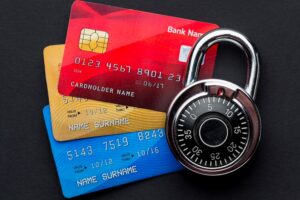How to build your credit from scratch
Building credit from scratch might take some extra effort, but once you know what to do and follow some tips, it can be simple.
Follow these tips and start building your credit!
Having good credit is super important if you ever want to buy a house, get a car, rent an apartment, or even secure a job.

Why Building Credit Matters
When it comes to major purchases, you’ll likely need a loan unless you have enough cash to cover everything upfront.
That’s why landlords, employers, and utility companies often check your credit score to see how trustworthy you are.
But don’t worry—once you start building your credit, your score will begin to climb, opening doors to bigger loans, better interest rates, and credit cards that come with great perks.
Also, you can always check out your credit score for free, in the annual credit report, so you can simply track your progress.
Stick with us, and we’ll share some helpful tips to get you started on building your credit from scratch!
Apply for a Secured Credit Cards
Secured credit cards are often a lot easier to get than traditional credit cards, especially if your credit history isn’t great or if you’re just starting out.
If you handle your account responsibly, these cards can really help you build up your credit score.
Just like regular credit cards, secured cards come with a credit limit and can accrue interest fees. Some of them even offer rewards!
The main difference is that you’ll need to make a security deposit, which usually starts at around $200, although some cards may require less.
Your security deposit essentially acts as your credit limit, so if you put down $500, that’s what you can spend.
After you make on-time payments for a while, the card issuer might review your account and could raise your limit or even switch you to an unsecured card, returning your deposit.
Apply for a student credit card
Getting a credit card while you’re in college can be easier than you think. Many banks, credit unions, and other lenders offer cards designed just for students.
They usually come with lower credit limits, but if you’re eligible and feel confident in balancing both your studies and payments, they can be a good option to start building your credit.
Build credit by paying your bills on time
In case you’re trying to improve your credit without using a credit card, Experian Boost™ can help you get credit for paying your utility bills, cell phone plans, and streaming services on time.
Normally, these payments aren’t reported to credit agencies, but with this free service, you can link them to your Experian credit report.
Once you sign up, your timely payments will be factored into your credit history. Plus, you’ll get an updated FICO score and a copy of your Experian credit report.
Become an authorized user
If you’re struggling to get approved for your own credit card, one option is to ask a family member with a solid credit history if they can add you as an authorized user on their card.
As an authorized user, you’ll get a card in your name, but it will be linked to their account.
Many times, the credit card company will report the account’s activity to the credit bureaus under your name, which can be a great way to start building your own credit score.
Explore a Credit Builder Loan
Credit builder loans are created to assist individuals in improving their credit scores.
They’re usually offered by smaller banks and credit unions and resemble secured credit cards because you must provide an upfront deposit before accessing any funds.
For example, if you take out a $1000 loan, you won’t receive that amount to spend immediately.
Instead, you’ll make regular payments toward the principal — and possibly some interest — which are held in a secure account. Once you’ve paid off the entire loan, the funds will be released to you.
The primary advantage of these loans is that your timely payments will be reported to credit bureaus, allowing you to start building your credit history.
If you found these tips helpful and want to learn more about how to understand your credit score, check out this article by clicking the button below.






